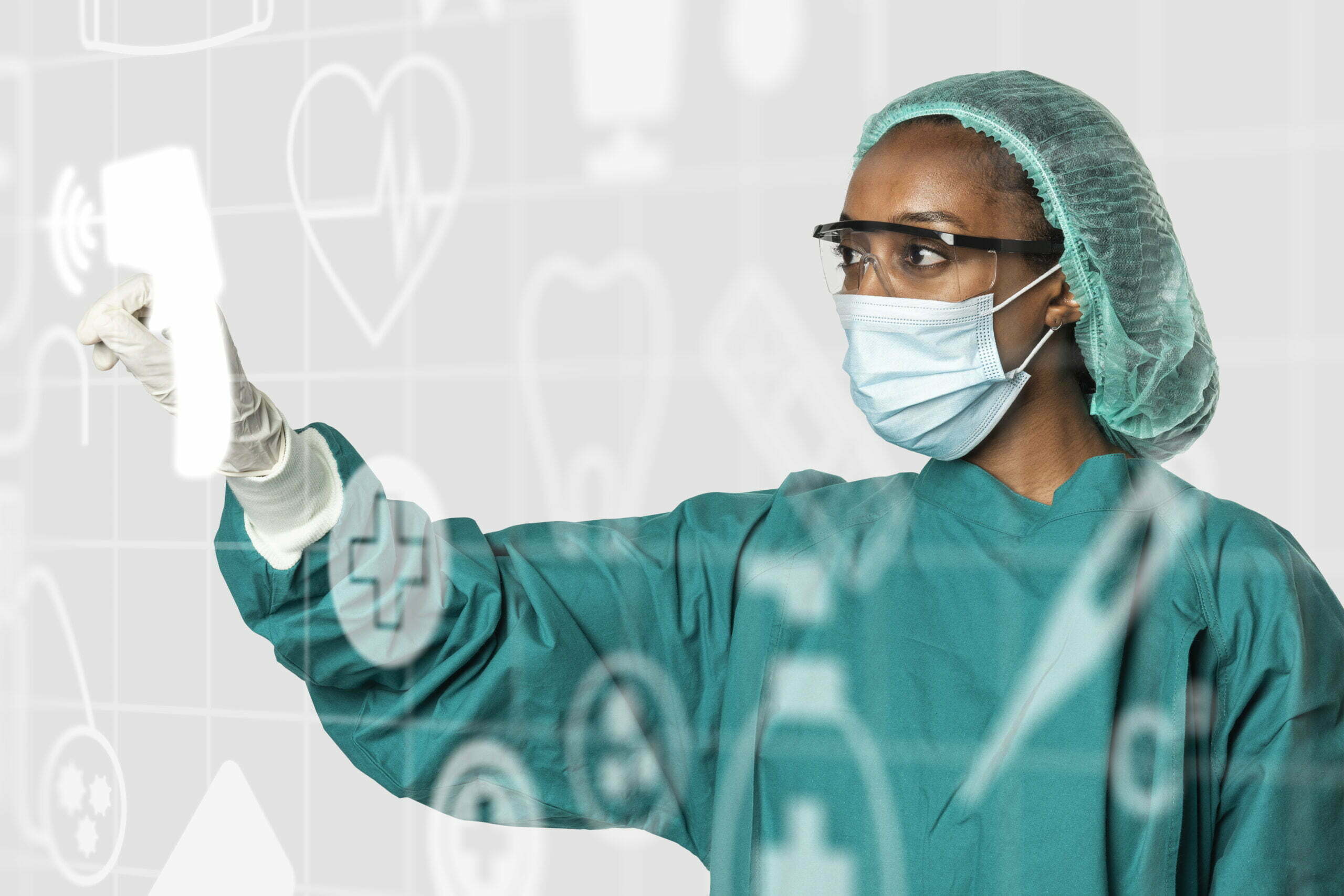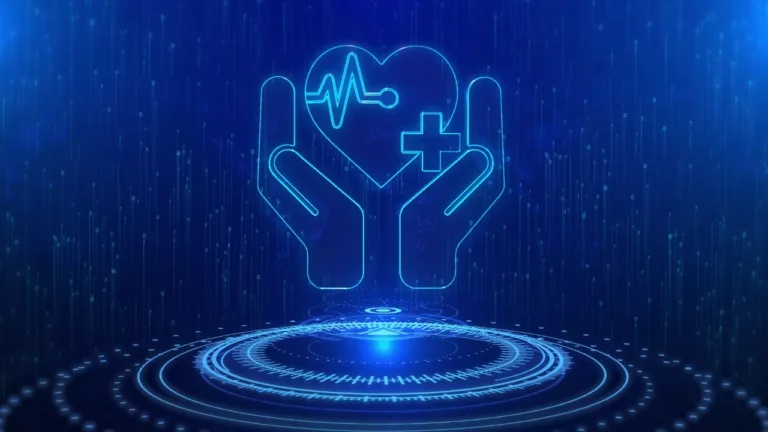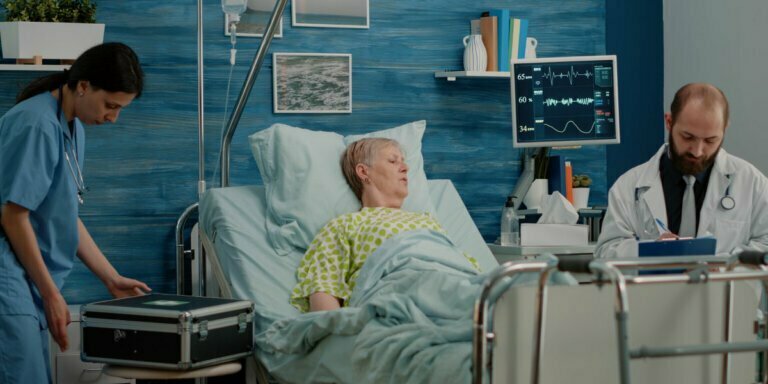For many people, the term “artificial intelligence” (AI) generates mental images of futuristic robots and hyper-intelligent devices providing us comfortable lives. That’s because the big-budget movies and contemporary mass media entertainment weave stories about them. But nothing could be further from the truth. The reality is that AI is a product of human judgment and data-driven science, which makes our lives less complicated in a variety of unexpected ways.
What is AI?
Artificial intelligence (AI) is built on the principle that human intelligence can be defined in a way that a machine can easily mimic it and execute tasks—from the simplest to those that are even more complex— with the use of algorithms based on a constructed conceptual framework. In simple terms, AI technology enables computers to independently solve problems and make decisions by using logic and perception based on vast data sets.
Impacts of AI in Health Care Services
There is no doubt that AI technology has a great potential to generate positive results in health care industry. To help care providers better understand how the growth of AI in health care may impact their career in the future, there are just a few specific areas in health care that are transforming as AI technology penetrates the industry:
Preventive Care
Using data monitoring and analysis, health care professionals are now able to predict potential health outcomes more accurately and timely with the use of AI technology. Doctors, with the use of AI, can recommend courses of preventive care as they analyze patient’s data transmitted through a computer or application. AI technology is able to recognize shifts and patterns in data more quickly and comprehensively than most humans and can even predict conditions before the patient ever starts to feel ill.
Radiology
AI is used in image recognition that makes it well-suited for radiology. AI image recognition is used as a determining diagnosis produced by X-rays computed tomography (CT), magnetic resonance imaging (MRI), positron emission tomography (PET), ultrasound, and other imaging tools. Radiologist can take advantage from massive stores of data generated by AI to achieve more accurate and fast radiological results.
Stroke Management
Adequate analysis of stroke imaging is crucial to managing the aftereffects of a stroke and determining a patient’s care plan moving forward. Utilization of AI to stroke management could enhance diagnosis accuracy and patient care quality. In the near future, such AI techniques may play an important role in determining the most appropriate therapeutic methods and predicting the prognosis for stroke patients in a personalized manner.
Clinical Decision-making
The health care system collects data about the human body every day. However, some patients contribute little information with their health records, and some traditional devices cannot accurately measure vital signs. AI technology can generate data that were not able to be seen before. The increasing availability of health-care data, combined with the rapid development in analytical techniques, is causing a paradigm shift in health-care delivery. Through uncovering clinically important knowledge hidden in vast amounts of data, AI technology will help clinicians make better decisions. Lastly, AI technology can help health care provides compile and store relevant information for future medical use.
Chronic Care Management
Studies show that around 40% of the U.S. population suffers from a chronic disease – approximately 133 million Americans, and is expected to rise to 157 million by the year 2020. Using AI technology, telemedicine including remote patient monitoring can improve chronic disease management by keeping patients in touch with their care providers. Doctors and other medical specialists can use AI-driven digital devices to manage a patient’s condition anywhere they are, reducing the chances of a lapse in treatment and hospital readmission rates. Without these digital tools and AI application, many patients will have trouble consulting with their doctors.
AI and Telehealth
Amid COVID-19 pandemic, many health care professionals like doctors and nurses are starting to find ways on how to effectively incorporate cutting-edge AI technology to increase job security and opportunities. Most of them are seeing an increasing demand in the telehealth and remote patient monitoring space— the transmission and exchange of medical data between different channels.
Telehealth companies play a major role in addressing present challenges for health care in the US and all over the world. There is an expected increase in chronic diseases such as diabetes, congestive heart failure and obstructive pulmonary disease. According to statistics, 5 million patients are admitted to the intensive care unit that accounts for 20% of the hospital’s operating budgets. In addition, hospitals face increasing number of in-person appointment cancellations due to fear of contacting COVID-19. Telehealth can help solve such challenges by connecting to the right organization with the most appropriate resources and technology, and expertise in real-time monitoring and connected health care.
Adopting and investing in telehealth had been too high and complex. But now, owing to technological advancement and enhanced network services, the utilization of telehealth for care providers is now efficient and easily affordable which also makes the return on investment higher than before.
Takeaway
AI technology has become a vital part of health care’s future. The uses of AI technology in health care— promoted by new technological advancement and propelled by Covid-19 pandemic— address the growing need to care for more patients with a better quality of diagnosis and treatment in a timely manner. Disease prevention, patient analysis and diagnoses, and treatment plans may be more accurate owing to AI technology.








